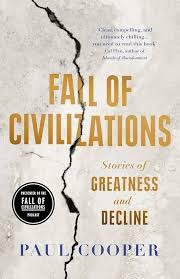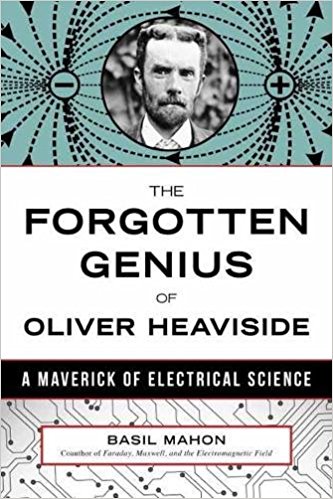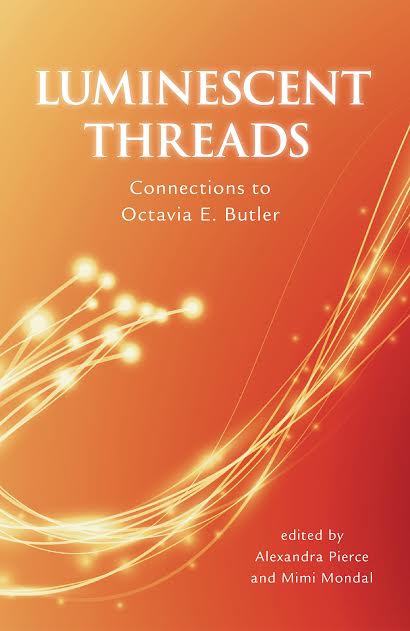Book Review: Inventing the Renaissance by Ada Palmer

I think Palmer’s Inventing the Renaissance justifies its size and then some.
And for the genre reader, this is a chonky, valuable book for showing that the past is a different country…and yet the people in it are awfully human. One can get a real appreciation for authors like Jo Graham and Guy Gavriel Kay by reading the full-on history that Palmer provides here…
Book Review: Fall of Civilizations, by Paul Cooper

Paul Cooper’s Fall of Civilizations: Stories of Greatness and Decline takes the interests, enthusiasm and curiosity of the author and translates it from his popular podcast format into a book. There appears to be a small but distinct market of non-fiction books, where the author originally had a non-fiction podcast on a subject, and then switched over to writing non-fiction on that or similar or related topics. The apotheosis of this process are actual published books rather than just blog posts and essays. This trend is older than you probably think and started at the dawn of podcasting, with historian Lars Brownsworth going from a podcast on Byzantine Emperors to writing Lost to the West: The Forgotten Byzantine Empire That Rescued Western Civilization, among other non-fiction history books. Mike Duncan, podcaster of the History of Rome, and Revolutions, did a book on the start of the fall of the Roman Republic (The Storm Before the Storm) , and one on Lafayette (Hero of Two Worlds), who loomed large in his Revolutions podcast. Dan Carlin, a prolific and wide-ranging non fiction podcaster since the beginning of podcasting, wrote a book “The End Is Always Near: Apocalyptic Moments, from the Bronze Age Collapse to Nuclear Near Misses, which basically is an episode of his podcast, in book form. The audio version of the book, narrated by Carlin himself, blurs that line even further. And so we come to Paul Cooper’s Fall of Civilizations. In terms of total numbers of episodes, Cooper’s podcast oeuvre is much less than the aforementioned podcasts, his large subscriber base, however, made him a natural to land a book deal, however. His podcast, and perforce, the book, does what it says on the tin; it tackles a variety of civilizations, what made them tick, and why they collapsed. The book is divided into relatively digestible chapters (and I would say more digestible than the usually lengthy podcast episodes, which aside from some early ones generally run over three hours each), each tackling a different ancient to early modern civilization.The book ends with a “lessons learned” epilogue that ties into the theme of the book in general. What we get for civilizations that Cooper tackles are: The SumeriansThe Late Bronze Age CollapseAssyriaCarthageHan ChinaRoman BritainThe MayaThe KhmerByzantiumVijayanagaraSonghaiThe AztecsThe IncaEaster Island Cooper’s accomplishment is giving a base 101 course in the particular civilization, simplifying matters for a general reader, showing the civilization’s strengths, and then how and why things went downhill. It’s a familiar format to anyone who has listened to any episode of the podcast. It’s a wide ranging, although not absolutely comprehensive list of every civilization that has suffered a catastrophic collapse. There is some overlap with his podcast but there is much new material here as well. But I should say here that the book is not shallow, just like the podcast itself isn’t. While Cooper does boil things down for a typical reader, this book (as well as his podcast) is a classic case of the iceberg. This is made much more apparent in this book, thanks to the copious footnotes and an extensive bibliography. It should be emphasized on the other hand that this is not a grand academic work; this is definitely a book that seems designed to stir your curiosity, and not get too deep into the weeds and minutiae of any of the particular civilizations. That bibliography for each of the chapters is an excellent resource for a reader to pursue more knowledge and history about a particular civilization, and the bibliography does have very many technical works for specialists included. If you want to go very deep, Cooper first whets your appetite with his chapter, and then provides you the rabbit hole to plunge into. However, knowing too much about a civilization before reading the book had its hazards. This left me in a position where for some chapters, I was in rapt fascination because I knew relatively little of the details (Vijayanagara and Songhai in particular), but for others, I had to resist my “But, wait…” and bite my tongue when Cooper elided, skipped or overly summarized a detail I know very well. (this was particularly true for Roman Britain and Byzantium) So I return to the question of who this book is for. I provided the list of civilizations covered purposefully. If you have a strong knowledge of most of them, you are not going to find that much new here except for some fun details here and there, and that list of works to go deeper on if you want to take that plunge. However, if you are a fan of the podcast and Cooper’s style and presentation, that does map rather well to the book (and I suspect the audio edition of this book will have an even stronger correlation). And there is some lovely writing and imagery here, as previous listeners of the podcast might expect: “A ruin is a paradox. Each one shows us the fearsome power of time, while simultaneously standing in defiance of it.” And then there is the book’s theme that runs through each of the chapters, and is brought into stark relief in the aforementioned epilogue.. It’s not the happiest of themes, the recognition that every great civilization will perish or change into another form, and what will the legacy of our civilization be when it finally does? A number of the civilizations in this book fell due to or partially due to the stressors of climate change, which is a message that is extremely relevant and poignant in this day and age. The rapidity of how climate can change to a new and much less pleasant and congenial normal is a story that hits time and again in this book. Cooper makes it clear that we are facing a challenge in this day and age equal to the ones faced by the previous civilization. That may make this book a less “fun” read, but it makes it poignant, resonant and important.
Guest Post: The Hobby-Writer’s Tale by Basil Mahon

I took up book writing after retiring from regular work. It’s a wonderful hobby, but a harsh one. Being able to write well is not enough. To gain even the most modest success you need passion for your subject, great perseverance, and a measure of luck. I am one of the lucky ones, having had three books published which together have sold about 50,000 copies and been translated into five languages. This hasn’t made me rich but I have the tremendous satisfaction of knowing that every day someone, somewhere in the world, is getting enjoyment from reading my words. Perhaps something of what I’ve learned on the way may be useful to someone setting out on a similar path. I hope so. There’s something paradoxical about writing a book. It’s a solitary activity—there’s no escaping the sense of isolation when one faces the first blank page. Yet, to me, the joy of writing lies in the fellowship with readers, in the sharing of enjoyment.
My Superpower: Chris Caldwell

My Superpower is a regular guest column on the Skiffy and Fanty blog where authors and creators tell us about one weird skill, neat trick, highly specialized cybernetic upgrade, or other superpower they have, and how it helped (or hindered!) their creative process as they built their project. Today we welcome Chris Caldwell. I’ve always been fascinated by illusion and transformation; the concepts of changing a thing into something new, and something appearing to change but remaining the same, go hand in hand. My stories The Beekeeper’s Garden (Fiyah, Spring 2017) and Serving Fish (‘Fantastic Stories of the Imagination, People of Color Take Over’ Issue 2017) explicitly deal with illusion and transformation as they apply to the experiences of marginalized people. I am a skeptic who deeply wants to believe. I know the magician is palming the coin while still hoping she has conjured it from the ether.
Women Destroy Reviewing!
…Fantasy is a genre that tends to destroy women — or if not destroy, then de-story. –Wendy N. Wagner I’ve been quite curious what Women Destroy Fantasy!, the October 2014 special issue of Lightspeed/Fantasy Magazine, would be all about. You don’t hear so much whiny dudebro noise about girl cooties in dragon lairs as you do in rocketships; fantasy seems to have far more female protagonists and memorable secondary characters in its canon than science fiction does; more people can at least name some female fantasy authors. Fantasy seems to be a genre that is at least less inhospitable to women than science fiction is. Well, the opening quotation from the editorial pretty much sums it up. Women are often erased from the genre: the authors are not talked about; their work is marketed differently and, well, less; they’re stricken from certain genre categories. Female characters are fridged and used as gross object-fantasies. And that’s to say nothing about how many potential female readers may be alienated from the genre by frightful covers and the overwhelming numbers of books titled something like “The Half-King of the Dude-Sword,” as I was for so many years. The fight for women in fantasy is not just to exist, but to have agency at all.
Recommended Reads for October 2013

Recommended Reads is a monthly feature in which the Skiffy and Fanty crew tell you about one thing they recently read that they think you might like too. Here are their picks: Shaun Ancillary Justice by Ann Leckie (Orbit Books: Oct. 2013) To say that a lot of people are talking about this book is an understatement. Yet, the amount of buzz Leckie has received for Ancillary Justice, her debut novel, is deserved. This is the kind of military SF / space opera a lot of us have been waiting for. From the first pages, the novel tears down our comfortable notions of self and gender, pulls apart language to display its arbitrary construction in relation to culture, and shoves us right smack dab in the middle of a sprawling, reminiscent empire. It’s the kind of novel that my geek side can squee about without end…oh, hell, my academic side is doing that too. If you’re looking for

